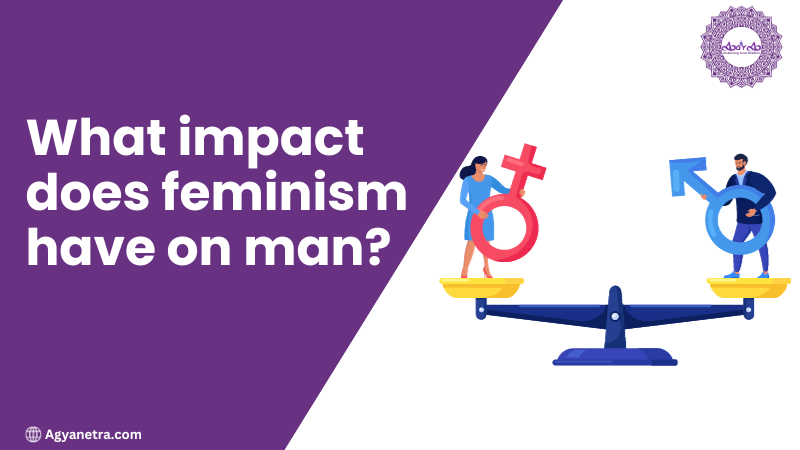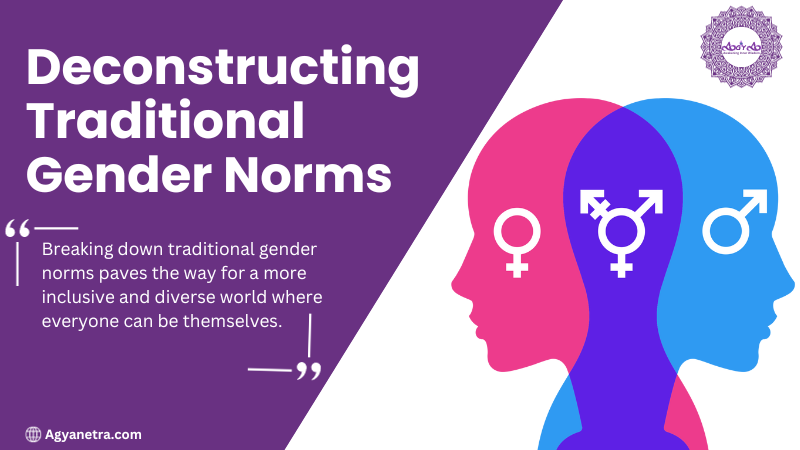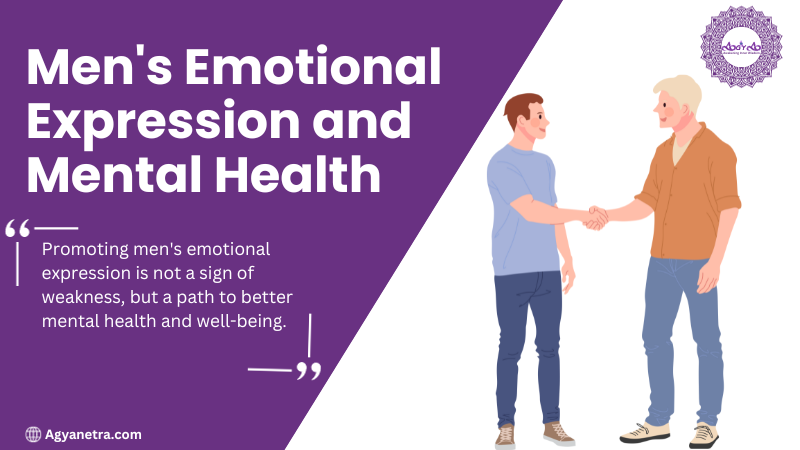Today, we will dive into the complex relationship between feminism and male identity. We will look at how feminism challenges, redefines, and modifies what it means to be a man in the twenty-first century.
So, let us delve in and investigate What impact does feminism have on man? uncovering the subtle yet important transformations occurring in our view of masculinity.
What impact does feminism have on man?
Gender and identity boundaries are undergoing tremendous alteration in an ever-changing environment. The feminist movement, which is well-known for its promotion of gender equality and women’s rights, is also important in redefining men’s identities.

While feminism’s primary goal is to alleviate women’s historical disadvantages, its impact extends beyond opposing established gender standards and encouraging a more inclusive definition of masculinity.
For thousands of years, societal expectations placed inflexible behaviors and features on males, resulting in a preconceived concept of masculinity.
These ideas, which are frequently connected with “toxic masculinity,” promote emotional suppression, domination, aggressiveness, and objectification of women.
Toxic masculinity is restricting and can hurt males by inhibiting their emotional expression and fostering destructive behaviors in themselves and others.
This article sets out to investigate the complex relationship between feminism and male identity.
We will look at seven key points that demonstrate how feminism is altering the concept of being a guy in the twenty-first century.
You May Like: Feminism and Masculinity: Difference & Examples
Deconstructing Traditional Gender Norms
One of feminism’s most visible effects on masculine identity is its ongoing endeavor to deconstruct old gender standards. Historically, society imposed gender-specific responsibilities and behaviors, supporting a binary idea of being a man or a woman.

Men were supposed to exemplify strength, emotional stoicism, and domination, whereas women were relegated to responsibilities centered on caregiving and submissiveness.
Individual freedom was limited, and emotional expression was hampered for all genders.
Feminism opposes this binary paradigm by emphasizing that both men and women have unique abilities and characteristics.
It opposes the notion that particular features and behaviors are solely the realm of one gender, instead pushing for a gender-inclusive perspective in which individuals are free of the confines of obsolete preconceptions.
Read More: Gender Inequality in Indian Culture
Manhood Redefined
The redefinition of manhood is one of the most significant effects of feminism on masculine identity. Toxic masculinity, a result of inflexible gender stereotypes, encourages harmful behaviors in both men and women.
These behaviors, which include emotional suppression, dominance, violence, and objectification of women, contribute to a toxic environment that hinders personal growth and harms relationships.
Feminism pushes males to reject unhealthy masculinity expressions and embrace healthier masculinity manifestations.
Empathy, emotional intelligence, and respect for women’s autonomy are all emphasized by the movement.
As a result, feminism promotes a more enlightened and compassionate understanding of what it is to be a man, free of the confines of toxic masculinity.
Men as Feminist Allies
Feminism actively invites men to join the fight for gender equality. Feminism emphasizes the need for men’s active participation in the cause by realizing that outdated gender norms and the destructive behaviors connected with them affect men as well.
Men’s involvement as allies is critical in altering masculine identity and establishing a society in which both genders unite to challenge and demolish gender norms.
Deconstructing Patriarchy
Traditional gender roles and toxic masculinity have long been fostered by patriarchy, a system in which males wield excessive authority and women are frequently excluded.
The primary purpose of feminism is to deconstruct patriarchal structures by exposing inherent power disparities.
As patriarchy is faced and abolished, traditional gender norms are broken, allowing for greater gender expression freedom and a more nuanced masculine identity.
Gender Equality Promotion
Feminism promotes gender equality at its core, attacking the basic foundations of old gender norms and toxic masculinity.
Feminism helps a society in which no gender is systematically disadvantaged or favored by pushing for gender equality. This emphasis on equality and personal choice is critical in altering male identity.
Men’s Emotional Expression and Mental Health
Feminism’s involvement in supporting men’s mental health and emotional expression is a crucial component of its impact on masculine identity.

Toxic masculinity frequently hinders males from expressing their emotions or getting help when it is required. Feminism promotes emotional expressiveness and thinks that vulnerability does not imply weakness.
Male Friendships and Relationships in Evolution
Feminism has also changed the way males perceive and handle friendships and relationships.
Toxic masculinity has frequently impeded deep emotional connections and vulnerability, making it difficult for males to express themselves authentically.
By breaking free from the confines of old gender conventions, feminism encourages males to form better, more meaningful relationships.
Conclusion
To summarize, feminism has had a deep and revolutionary impact on male identity. It questions traditional gender standards, redefines manhood, and encourages healthier masculine expressions.
The inclusion of males as allies and the breakdown of patriarchal systems facilitates the remaking of male identity.
Feminism emphasizes that the transformation of masculine identity benefits not only women but all of humankind as we work collaboratively to erase the damaging effects of old gender norms and toxic masculinity on our road toward a more egalitarian and inclusive society.
The transformation of masculinity in the age of feminism promises a future in which men can express their true selves without being constrained by toxic masculinity and old gender standards.
As feminism continues to impact and alter men’s identities, society gains a more informed and sympathetic view of what it means to be a guy in the modern world.
You may also Love: Love’s Unexplored Path: A Journey of Fear and Courage
FAQ’s
What effect does feminism have on conventional masculine identity?
Feminism challenges and reshapes traditional masculine identity by arguing for more inclusive gender norms and supporting healthier forms of masculinity.
Can guys be feminists while still maintaining their masculinity?
Yes, males may be feminists while maintaining their manhood. Feminism urges males to promote gender equality while being true to their individuality.
Does feminism confront toxic masculinity, and if so, why is this crucial for men?
Feminism opposes toxic masculinity by opposing damaging stereotypes and behaviors. This challenge is critical for guys because it fosters healthier masculinity expressions and improved mental wellness.
How can men participate in feminist movements, and how does this affect their identity?
Men can be allies in feminist movements, helping to achieve gender equality. Their participation reinforces the message and fosters a more inclusive understanding of masculinity.
How does feminism inspire more true masculine manifestations in men?
Feminism promotes healthier masculinities by questioning established standards, encouraging empathy and emotional expression, and recognizing women’s agency. This assists guys in developing a more real and compassionate sense of self.

Vidushi Gupta is an accomplished writer and digital marketing expert with contributions to organizations like Miles Educomp and ICAI. She has authored nearly ten novels and worked as a Senior Content Writer and Digital Marketing Specialist at ESS Global and Shabd. Her Quora posts have amassed almost 20 million views, reflecting her belief in the transformative power of the written word.

